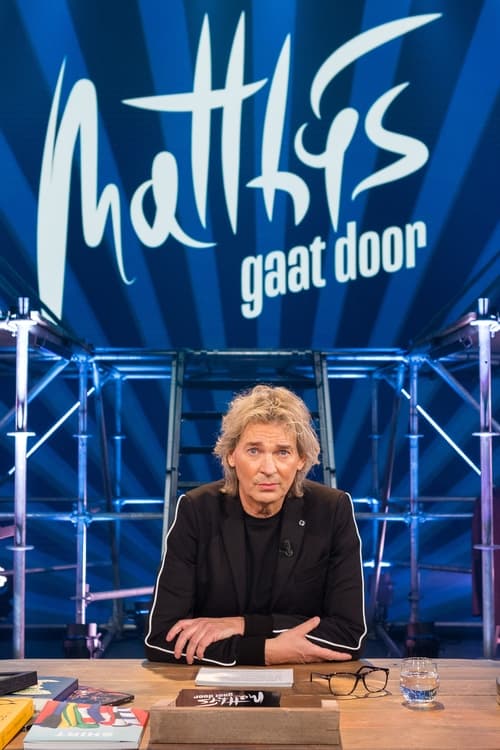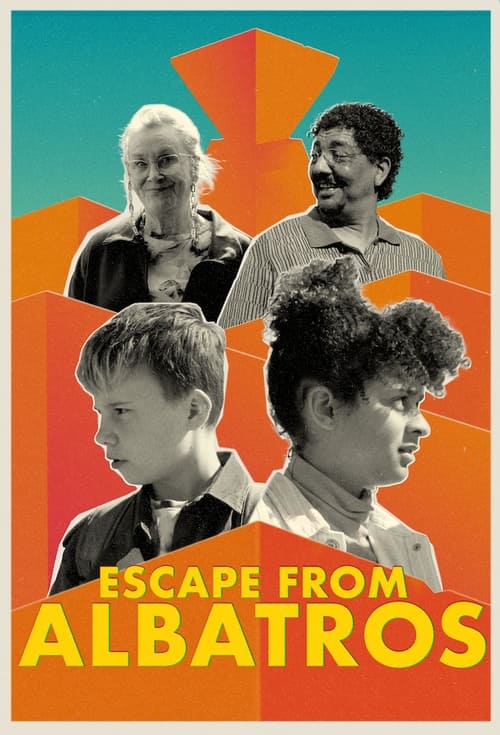
Ask Your Own Question
What is the plot?
In the opening scene of "Episode 10," Lisa is seen sitting alone in her dimly lit apartment, staring at her phone. The weight of her recent decisions hangs heavily on her, and she scrolls through messages from her friends, feeling increasingly isolated. The camera captures her furrowed brow and the tension in her shoulders, reflecting her internal struggle. She receives a call from her best friend, Mia, who urges her to come out and join a gathering, but Lisa hesitates, torn between wanting to connect and feeling overwhelmed.
As the scene shifts, Lisa finally decides to meet Mia and the others at a local café. The atmosphere is lively, filled with laughter and chatter. Lisa enters, and her presence is met with warm greetings, but she feels out of place. The camera focuses on her forced smile as she engages in small talk, revealing her discomfort. Mia notices Lisa's unease and pulls her aside, encouraging her to open up about what's bothering her. Lisa confesses her fears about her future and the pressure she feels to succeed, which leads to a heartfelt conversation about friendship and support.
The next sequence takes place the following day, where Lisa is at her job. She is working on a project that has been causing her significant stress. Her boss, Mr. Thompson, approaches her with a critical tone, expressing disappointment in her progress. Lisa feels a surge of anxiety and frustration, and as she tries to defend her work, she stumbles over her words. The scene captures her vulnerability, with close-ups of her trembling hands and the way she bites her lip in an effort to hold back tears. After the meeting, she retreats to the break room, where she vents to a coworker, expressing her desire to prove herself but feeling increasingly defeated.
Later, Lisa receives an unexpected visit from her estranged father, who shows up at her apartment unannounced. The tension is palpable as they exchange awkward pleasantries. Lisa's initial shock quickly turns to anger as she confronts him about his absence in her life. The confrontation escalates, with Lisa accusing him of abandoning her and her mother. Her father attempts to explain his choices, but Lisa is not ready to forgive. The emotional weight of their conversation is highlighted by the close-up shots of their faces, capturing the hurt and unresolved feelings between them.
In the following scene, Lisa seeks solace in her art, spending hours painting in her studio. The colors on the canvas reflect her tumultuous emotions--dark blues and reds swirling together. As she paints, she loses herself in the process, and the camera captures her transformation from despair to a sense of catharsis. This moment of creativity serves as a turning point for Lisa, allowing her to channel her feelings into something tangible.
The narrative then shifts to a pivotal moment when Lisa decides to confront her boss about her project. She prepares for the meeting, rehearsing her points in front of the mirror. When she finally meets with Mr. Thompson, she presents her ideas confidently, advocating for her vision. The tension in the room is thick as she stands her ground, and Mr. Thompson's demeanor shifts from critical to impressed. He acknowledges her hard work and offers her a chance to lead the project, which fills Lisa with a sense of accomplishment and validation.
As the episode progresses, Lisa reconnects with Mia, and they share a heartfelt moment over coffee. Mia encourages Lisa to embrace her creativity and not be afraid of her emotions. This conversation serves as a catalyst for Lisa to take charge of her life, and she resolves to pursue her passion for art more seriously. The scene is filled with warmth and camaraderie, showcasing the strength of their friendship.
In the final sequence, Lisa attends an art exhibition where her work is displayed for the first time. The atmosphere is electric, filled with art enthusiasts and critics. As she walks through the gallery, she feels a mix of pride and anxiety. When she finally sees her painting on the wall, she is overwhelmed with emotion. The camera captures her teary-eyed expression as she realizes how far she has come. Friends and family surround her, offering words of encouragement and admiration. The episode closes with Lisa standing in front of her artwork, a sense of hope and determination radiating from her as she embraces her journey ahead.
What is the ending?
In the ending of "Lisa," Season 1, Episode 10, Lisa confronts her past and makes a pivotal decision about her future. The episode culminates in a tense confrontation with her estranged father, leading to a moment of emotional catharsis. Lisa ultimately chooses to embrace her independence, leaving behind the toxic relationships that have held her back. The episode closes with her stepping into a new chapter of her life, symbolizing hope and self-discovery.
As the episode unfolds, the scene opens in Lisa's small, cluttered apartment, where she sits at her kitchen table, staring at a letter from her father. The camera captures the tension in her furrowed brow and the way her fingers nervously tap against the wood. Memories of her childhood flash through her mind, filled with both warmth and pain, as she recalls the moments that shaped her relationship with him. The weight of the decision looms over her, and the audience can feel her internal struggle.
The scene shifts to a local café where Lisa meets her best friend, Mia. The café is bustling with life, contrasting sharply with Lisa's inner turmoil. As they sit across from each other, Lisa confides in Mia about the letter and her feelings of betrayal. Mia, supportive yet firm, encourages Lisa to confront her father, urging her to seek closure. The camera captures the warmth of their friendship, highlighting the bond that gives Lisa strength.
Next, the scene transitions to a park where Lisa has agreed to meet her father. The atmosphere is tense, with dark clouds looming overhead, mirroring Lisa's apprehension. As she waits, she fidgets with her phone, glancing around nervously. When her father arrives, the air is thick with unspoken words. He appears older, wearier, and there's a flicker of regret in his eyes. The dialogue is sharp and emotional, filled with accusations and defenses as they both struggle to articulate their pain.
In a pivotal moment, Lisa confronts her father about the years of neglect and emotional distance. The camera zooms in on her face, capturing the raw emotion as she finally expresses her feelings of abandonment. Her father, taken aback, attempts to justify his actions, but Lisa stands her ground. The confrontation escalates, revealing deep-seated wounds on both sides. The scene is charged with emotion, and the audience can feel the weight of their shared history.
As the argument reaches its peak, Lisa experiences a moment of clarity. She realizes that holding onto the past is preventing her from moving forward. With tears in her eyes, she tells her father that she cannot continue to let him hurt her. This moment of empowerment is palpable, and the camera lingers on her face as she makes the decision to walk away. The rain begins to fall, symbolizing a cleansing of her past.
The final scene takes place back in her apartment, where Lisa stands by the window, watching the rain. The sound of droplets hitting the glass creates a soothing backdrop as she reflects on her journey. She picks up a journal and begins to write, documenting her thoughts and feelings. The camera captures her determination as she writes about her hopes for the future, signaling her commitment to self-discovery and healing.
In the closing moments, the screen fades to black, leaving the audience with a sense of hope and possibility. Lisa's journey is far from over, but she has taken a significant step towards reclaiming her life. The episode ends with a powerful message about the importance of confronting one's past to embrace a brighter future. Each character's fate is intertwined with Lisa's growth, as Mia continues to support her, and her father is left to grapple with the consequences of his actions.
Is there a post-credit scene?
In "Episode 10" of the TV show "Lisa," there is indeed a post-credit scene that adds an intriguing layer to the narrative.
As the credits roll, the screen fades to black before transitioning to a dimly lit café, where Lisa is seen sitting alone at a corner table. The atmosphere is quiet, with soft jazz music playing in the background, creating a reflective mood. Lisa stares into her coffee cup, her expression a mix of contemplation and uncertainty.
Suddenly, the door swings open, and a familiar figure enters--the character of Max, who has been a significant part of Lisa's journey throughout the season. He spots her and approaches with a tentative smile, but there's an underlying tension in the air.
Max takes a seat across from her, and the two share a moment of silence, both seemingly weighing the unspoken words between them. Lisa finally breaks the silence, her voice barely above a whisper, revealing her vulnerability as she admits to feeling lost after the events of the season.
Max leans in, his expression shifting from casual to serious, as he reassures her that she's not alone and that they can face whatever comes next together. The scene closes with a close-up of Lisa's face, a flicker of hope igniting in her eyes, hinting at the possibility of new beginnings and the strength of their bond.
This post-credit scene encapsulates the emotional depth of the series, leaving viewers with a sense of anticipation for what lies ahead in Lisa's journey.
What internal conflict does Lisa face regarding her future in this episode?
Lisa grapples with uncertainty about her future in Episode 10, torn between pursuing her passion for art and the pressure to follow a more conventional career path. This internal struggle is poignantly illustrated in a scene where she sketches her dreams, reflecting her desire for authenticity amidst external expectations.
What significant event occurs between Lisa and her mother in Episode 10?
In Episode 10, a pivotal confrontation takes place between Lisa and her mother, where long-buried resentments surface. Lisa, feeling stifled by her mother's expectations, finally expresses her desire for independence, leading to an emotional exchange that reveals the complexities of their relationship.
How does Lisa's relationship with her friends evolve in this episode?
Throughout Episode 10, Lisa's friendships are tested as she navigates her personal struggles. A key moment occurs when she confides in her best friend about her feelings of isolation, prompting a heartfelt discussion that strengthens their bond and highlights the importance of support during tough times.
What role does the school play in Lisa's journey in this episode?
In Episode 10, the school serves as a backdrop for Lisa's internal conflict. A crucial scene unfolds during a school assembly where Lisa is called to speak, forcing her to confront her fears of public judgment. This moment symbolizes her growth and determination to assert her voice.
How does the episode address Lisa's feelings of loneliness?
In Episode 10, Lisa's loneliness is poignantly depicted through a series of solitary moments, such as her wandering through empty hallways and her late-night reflections. These scenes capture her emotional state, emphasizing her yearning for connection and the weight of her isolation as she navigates her tumultuous teenage years.
Is this family friendly?
In "Episode 10" of the TV show "Lisa," there are several elements that may be considered objectionable or upsetting for children or sensitive viewers.
-
Emotional Conflict: The episode features intense emotional scenes where characters confront personal struggles and relationships, which may be heavy for younger audiences to process.
-
Family Tension: There are moments of familial discord that could be distressing, as characters navigate misunderstandings and conflicts that evoke feelings of sadness or frustration.
-
Themes of Loss: The episode touches on themes of loss and grief, which may resonate deeply and could be upsetting for sensitive viewers.
-
Mature Discussions: Some conversations may include mature themes or language that might not be suitable for younger viewers.
-
Visuals of Distress: Certain scenes may depict characters in distressing situations, which could be unsettling for children.
These aspects contribute to a narrative that, while rich in character development and emotional depth, may not be entirely family-friendly.

































